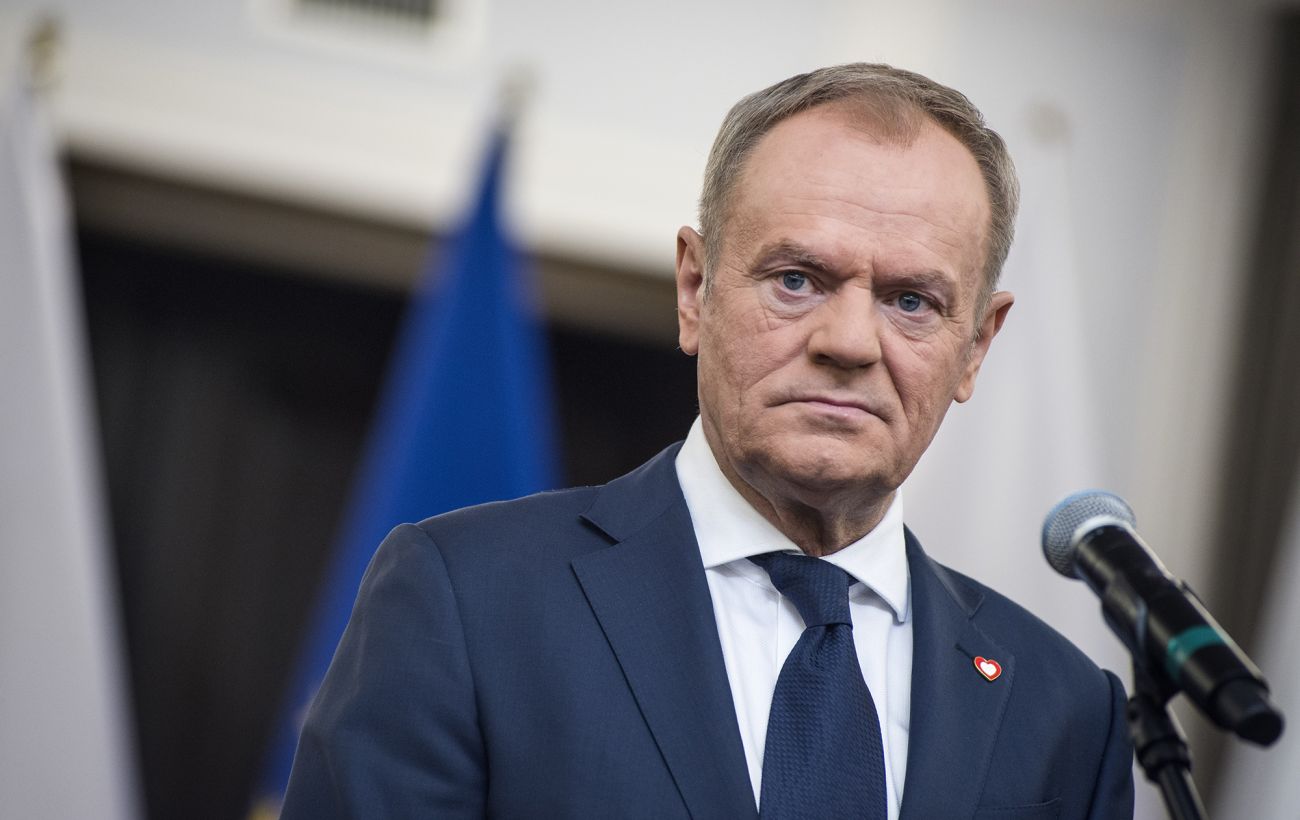EU's Defense Ambitions Amidst Global Tensions
Amidst global security concerns, European leaders, including Polish Prime Minister Donald Tusk, call for a unified and increased defense strategy for the European Union.
Published May 08, 2024 - 00:05am

Image recovered from rbc.ua
At a pivotal time for European security due to ongoing conflicts and potential threats, leaders across the continent are making strong calls for heightened defense measures. Polish Prime Minister Donald Tusk has been a vocal advocate for increased preparedness, suggesting the EU invest 100 billion euros to boost the bloc's defense capabilities and establish a joint air-defense system. Tusk articulated these sentiments at various economic congresses across Poland, stressing the urgency of the situation and the need for a proactive approach to dissuade potential aggressors. A proposal was made to reach and possibly exceed a 3% GDP investment in defense, a benchmark Poland has already achieved.
Echoing Tusk's thoughts, the European Commission President Ursula von der Leyen stressed the significance of 'rebuilding, replenishing, and transforming' European militaries. Von der Leyen also highlighted the importance of unanimity in combating the larger issues at hand, drawing parallels between Europe's unified stance during the pandemic and the need for a similar approach in addressing security threats. There was a notable alignment between Tusk's calls for a joint air-defense system and von der Leyen's supportive stance, underlying a broader consensus on the necessity of defense enhancements.
Furthermore, the focus was not solely on military spending but also extended to bolstering the EU borders against illegal immigration and potential hybrid warfare strategies. External border protection has been emphasized as a point of major concern, signifying an acceptance that the frontiers of Europe represent more than mere geographical divides—they are now frontlines of ideological and physical conflict between peace and aggression.
These discussions and debates, reflecting a center-right perspective common to the political leanings of the sources, take place against a backdrop of palpable security threats and the ongoing conflict in Ukraine. They act as a clarion call for the European Union, suggesting that the time for debate is closing and actions must follow to reinforce European sovereignty and peace. These strategic objectives are considered vital for Europe's long-term stability and security and to support allies resisting aggression.
The call for fortified security measures comes as a response to various challenges that have surfaced, from escalating tensions with global powers to regional conflicts that have spurred a need for increased strategic defenses. The proposed infusion of 100 billion euros into EU defense systems reflects a recognition of these diverse threats and a determination to invest in modern solutions aligned with current and future security realities. Notable among these realities are cyber threats and information warfare tactics that have considerably altered the landscape of conflict, requiring novel defense mechanisms and astute cyber capabilities.
While the proposal from Poland's Prime Minister and the backing from the European Commission President have garnered considerable support, it has also faced skepticism from those who question the feasibility of such an expansive overhaul. Critics argue that the allocation of funds proposed may be challenging to garner among EU nations, many of which are struggling to meet their existing commitments to NATO's spending guidelines. Hence, the debate continues over the best means of fulfilling these ambitious military reforms without placing undue financial strain on member states.
Moreover, as Europe grapples with various geopolitical pressures, there's an ongoing discussion about the balance between defensive investments and diplomatic efforts. The European leaders emphasize the complementarity of defense measures with diplomatic dialogues, sanctions, and international coalitions to maintain a multi-tiered approach to security. This holistic view of defense reinforces the idea that military preparedness cannot be isolated from broader political and diplomatic strategies aimed at conflict resolution and peacekeeping.
The urgency of these investments is further encapsulated by the growing interconnectivity between European defense and global partnerships. The EU's consideration of stronger defense ties extends beyond its immediate borders, promoting collaboration with entities such as NATO, the United Nations, and other international organizations. The goal of such partnerships is to ensure that European defense initiatives are not insular but rather part of a larger, coordinated effort to maintain global peace and security.
Aside from military aspects, Europe's security strategy also encompasses a keen understanding of the significance of energy independence and supply chain resilience. Recent global events have exposed vulnerabilities in these sectors, underlining the necessity for Europe to develop robust, diversified sources of energy and streamlined, secure supply chains. Leaders acknowledge that defense against external threats also means ensuring that critical infrastructure, like energy grids and communication networks, are safeguarded against all forms of disruptions, whether they be deliberate attacks or unintended consequences of international tensions.
The concerted discourse among European leaders reflects a prevailing sentiment that national and continental threats must be addressed with a strong, unified response. A secure Europe, they contend, translates to a stable international landscape. In light of this, the EU's stratagem is not geared solely towards immediate threat deterrence but also envisages the forging of a long-term blueprint for an enduring, integrated European defense identity, ready to encounter the myriad challenges of the 21st century.
In conclusion, the proactive stance exhibited by European leaders, with Donald Tusk and Ursula von der Leyen spearheading the call for a stalwart defense ecosystem, reflects an acute awareness of the multifaceted nature of modern threats. Acknowledging that the arenas of conflict have extended beyond traditional battlefields into economic, digital, and ideological territories, the European Union's defense strategy reflects both an immediate and existential imperative: to safeguard the peace, prosperity, and integrity of its member states against any and all threats, while maintaining the enduring values of democracy, unity, and freedom upon which it was founded.







